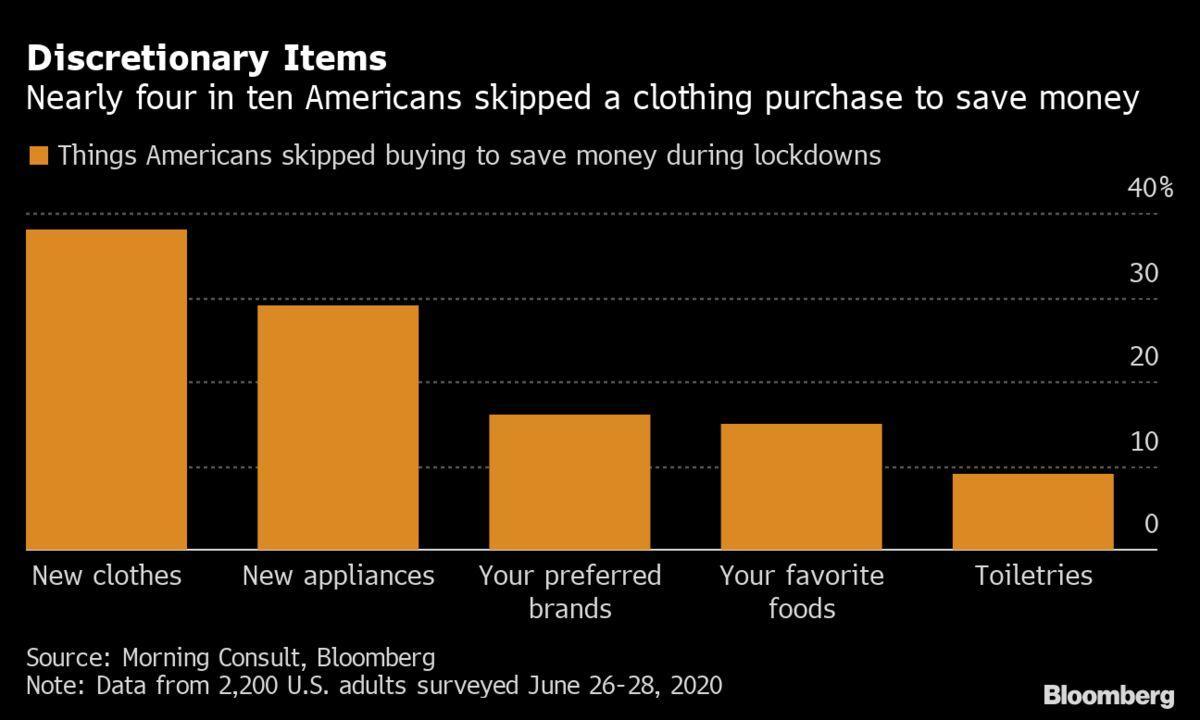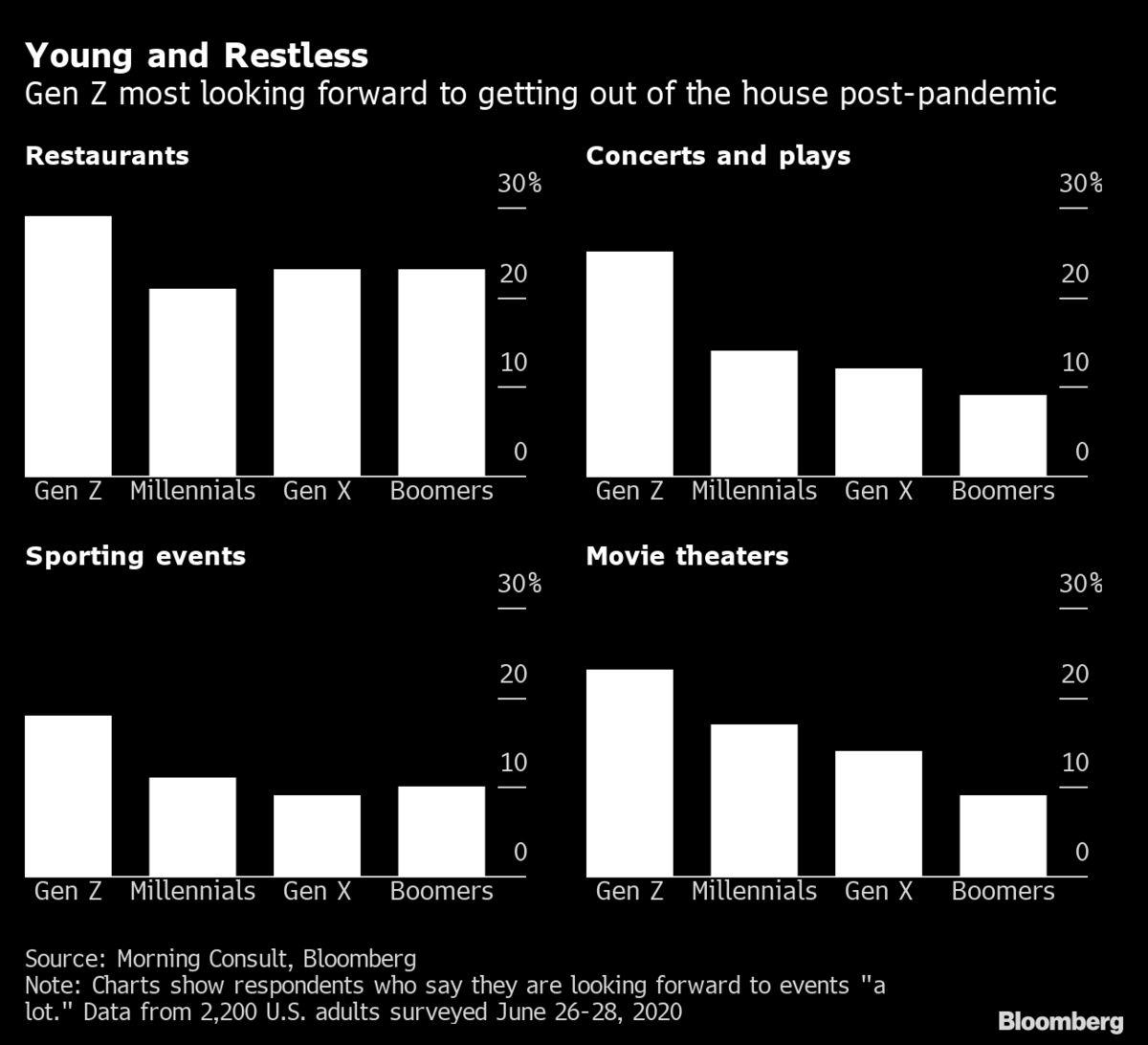Fearful And Frugal: COVID Weighs On Consumer Psyche
Tyler Durden
Tue, 07/07/2020 – 20:30
There is no question in our mind that consumer behaviors will be drastically reshaped in a post-corona world – one where a fearful and frugal consumer might result in a much slower economic recovery.
For more color on the evolving consumer, one that has been severely damaged by the virus-related recession, Bloomberg recently conducted a survey (of 2,200 adults) that found there is “waning interest in public events and material things, like appliances and clothes, and a new austerity, expressed through pantry stockpiling and delayed big-ticket purchases.”
The survey, polled between June 26-28, doesn’t account for the latest surge in coronavirus cases, and a stalled recovery with more than 40% of the country pausing or reversing reopenings. Shifting consumer trends, sort of like what happened in the Great Depression, is the government’s and Federal Reserve’s worst nightmare because declining consumption will result in no V-shaped recovery this year.
“People are generally expressing that they’ll do certain things less, or at home, on their own,” said Victoria Sakal, managing director of brand intelligence at Morning Consult, Bloomberg’s partner on the survey that was conducted on the last weekend of June. “There’s also a health component to how safe, comfortable and protected people feel.”
The survey first revealed that nearly half of the respondents aren’t ready to return to shopping malls.
Americans—often stereotyped around the world as confident to the point of arrogance—have developed a fear of enclosed retail spaces. While about three-quarters of U.S. adults feel okay shopping inside grocery stores or small businesses, more than half don’t feel safe inside a shopping center, the data show. This is only adding to the woes of malls. – Bloomberg

Readers may recall, commercial real estate is an absolute disaster as retailers are failing to make rent payments; this is a byproduct of a consumer ditching malls for e-commerce stores.
Another sign the recovery could be painful and prolonged is the survey found America’s love affair with bars has abruptly died in the age of pandemic. Half of the respondents said they’re “not at all” looking forward to drinking at bars – but rather continue drinking at home.

Respondents were less nervous about restaurants – though most said they would feel more comfortable if eateries adopted social distancing guidelines and new cleaning protocols.

The survey reveals respondents have become more frugal – the day of putting everything on the credit card(s) are over.
These cautious attitudes mark a stark change for a country that is both admired and derided for its at-times extravagant consumer culture. America invented the shopping mall and the movie theater, and has eight of the world’s ten biggest sports stadiums. But the coronavirus lockdowns have given rise to a new attitude: If you reopen it, they might not come.
Some of the hesitance is economic. Americans became more frugal during the pandemic, the survey shows. Over the past three months, 23% of respondents purchased more generic items, 28% increased bulk purchases and 41% chose to save money more often by forgoing a purchase. People also increased price comparing, while putting luxury and expensive purchases on hold at a higher rate.
This thriftiness could be here to stay, permanently shifting the makeup of the average American consumer—not unlike the Great Depression’s impact on spending habits 90 years ago. More than three-quarters of consumers say they expect to increase their savings rate and financial conservatism after economies fully reopen.- Bloomberg

Gen Z and millennial respondents appear to be the first generations looking forward to normalizing their social life – however, the percentages are still at very low levels.

Tens of millions unemployed, nearly three million jobs eliminated, those who were just rehired and now being fired, and states pausing and or reversing reopenings because virus cases are surging once more, this all suggests consumers are entering an age of thriftiness – bad news for anyone betting on the consumer.
via ZeroHedge News https://ift.tt/3fatAy6 Tyler Durden